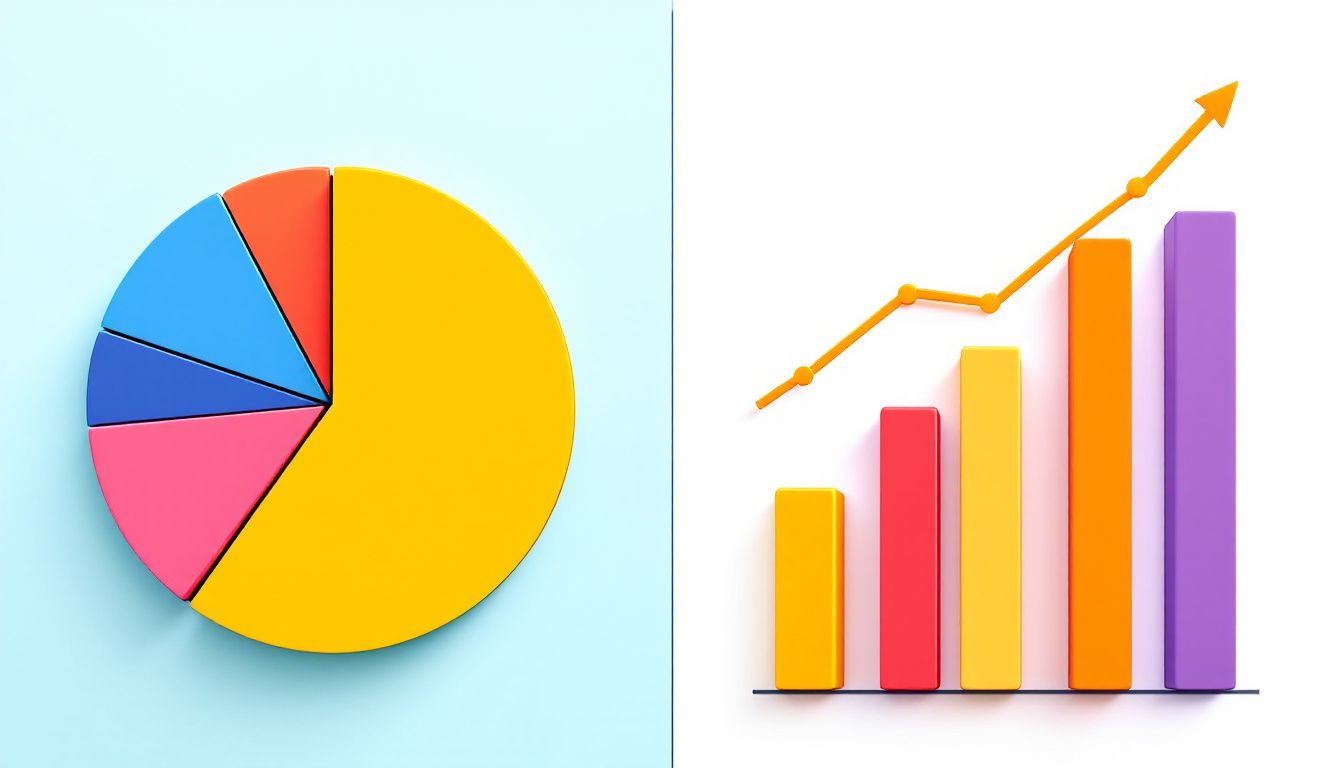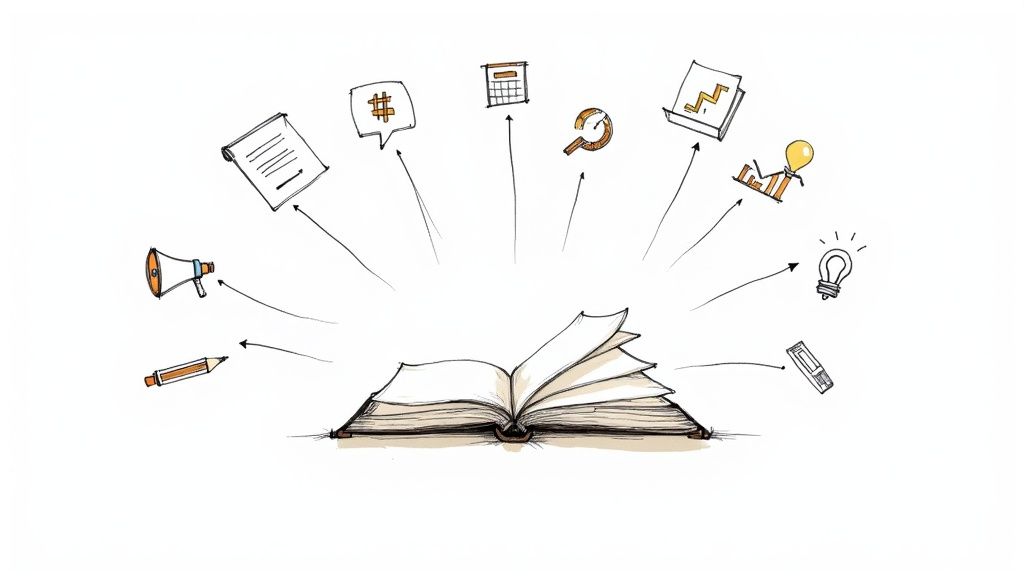Effective Ads for Indie Authors: Complete Guide to Boost Book Sales

Effective Ads for Indie Authors: Complete Guide to Boost Book Sales
Quick Answer
What's the most effective advertising strategy for indie authors in 2026?
Start with Amazon Ads for immediate discoverability (average $0.30-0.60 CPC, 2-5% conversion rate), then scale with Facebook Ads for audience building (average $0.50-1.00 CPC, 1-3% conversion rate). Budget $150-300 monthly for meaningful results, track ROAS (Return on Ad Spend) rigorously, and expect 60-90 days to achieve profitability. Success requires consistent testing, genre-appropriate targeting, and professional book packaging.
Top 3 advertising essentials:
- Amazon Sponsored Products - Reach readers actively searching for books in your genre
- Facebook/Instagram Ads - Build audience with precise demographic targeting
- Data-Driven Optimization - Track metrics weekly, adjust bids, test creative variations
In today's competitive publishing landscape where over 4 million books are published annually, paid advertising has become essential for indie author success. According to Written Word Media's 2024 Author Survey, 73% of successful indie authors invest in paid ads, with an average monthly budget of $250 generating a median ROI of 150-300%.
This comprehensive guide reveals exactly how to launch, manage, and scale profitable book advertising campaigns—even on a limited budget.
Understanding the Role of Ads in Book Promotion
Amazon's algorithm prioritizes books with sales velocity. Without initial momentum, even excellent books struggle with discoverability. Strategic advertising provides that crucial push to visibility.
According to BookBub's 2024 Advertising Report, 68% of book discoveries now begin with paid advertising, up from 45% in 2020. Authors investing $200+ monthly see average sales increases of 300-500%. The data is clear: paid advertising is no longer optional for serious indie authors.
Types of Ads Available for Authors
Pay-Per-Click (PPC) Ads
- Amazon Sponsored Products: Appear in search results and product pages (best ROI)
- Amazon Sponsored Brands: Showcase multiple books with custom headlines
- Google Ads: Capture searches outside Amazon ecosystem
Social Media Ads
- Facebook/Instagram Ads: Demographic and interest-based targeting
- TikTok Ads: Growing platform for BookTok audience (18-34 demographic)
- Pinterest Ads: Highly effective for romance, cookbooks, self-help
Book Promotion Services
- BookBub Featured Deals: $100-$650 per promotion, highest ROI
- Written Word Media: More affordable alternative ($50-$150)
- Freebooksy/Bargain Booksy: Budget-friendly options ($40-$80)
For more on integrating ads into your overall strategy, see our complete guide on book marketing strategies.
Platform Comparison: Which Ads Work Best
Choosing the right advertising platform dramatically impacts your ROI:
| Platform | Best For | Avg CPC | Conv Rate | Learning Curve | Minimum Budget |
|---|---|---|---|---|---|
| Amazon Sponsored Products | All fiction/non-fiction | $0.30-$0.60 | 2-5% | Moderate | $150/month |
| Amazon Sponsored Brands | Series authors | $0.40-$0.80 | 1.5-4% | Moderate | $300/month |
| Facebook/Instagram Ads | Audience building | $0.50-$1.00 | 1-3% | High | $200/month |
| BookBub Featured Deals | Quick sales boost | $100-$650 (flat) | 15-25% | Low | $100 per promo |
| Google Ads | Non-fiction | $0.80-$2.00 | 0.5-1.5% | High | $250/month |
| BookBub Ads | Genre fiction | $0.10-$0.40 | 1-2% | Low | $100/month |
Platform-Specific Recommendations
Fiction Authors: Start with Amazon Sponsored Products + monthly BookBub Ads Non-Fiction Authors: Amazon Sponsored Products + targeted Facebook Ads Romance/Fantasy: Amazon Ads + Facebook reader groups + occasional BookBub Featured Deals Thriller/Mystery: Amazon Ads primary, Facebook as secondary audience builder
Amazon Ads: Your Primary Discovery Engine
Amazon Advertising delivers the highest ROI for most indie authors because you're reaching readers already in buying mode.
Campaign Structure for Success
1. Automatic Campaigns (Discovery Phase - First 30 Days)
- Budget: $10-15/day initially
- Target ACoS: 70-100% (learning phase acceptable)
- Purpose: Discover which keywords/products convert
- Review search term reports weekly
2. Manual Keyword Campaigns (Optimization Phase) After gathering data from auto campaigns:
- Broad Match: Discovery mode (20% of budget)
- Phrase Match: Balanced approach (30% of budget)
- Exact Match: High-converting terms (50% of budget)
3. Product Targeting Campaigns Target competitor books or similar titles:
- Category targeting: Broad reach within your genre
- Individual ASINs: Competitor's top-selling titles
- Budget allocation: 20-30% of total Amazon ad spend
Amazon Ads Best Practices
Bid Optimization
- Start with $0.25-0.35 base bid for automatic campaigns
- Increase bids on high-converting keywords by 10-15% weekly
- Pause keywords with 20+ clicks and zero sales
- Adjust by placement: +50% for top of search, +20% for product pages
Negative Keywords Management Review Search Term Reports weekly and add negative keywords aggressively:
- Common negatives: "free," "summary," "pdf," "audiobook" (if you don't have one)
- Genre-specific negatives (e.g., "Christian" if not Christian fiction)
- Impact: Can improve ACoS by 20-40%
For advanced Amazon advertising tactics, check out our AI Amazon Ads optimization guide.

Facebook & Instagram Ads: Building Your Audience
While Amazon Ads capture existing demand, Facebook/Instagram Ads create demand by reaching readers who don't yet know about your book.
Facebook Ads Success Framework
Audience Targeting Strategy
Subscribe & Get Your Free Marketing Plan Template
Receive regular updates on marketing best-practices, AI shortcuts, and get our proven 4-phase marketing roadmap for free.
Unsubscribe anytime.
Interest-Based Targeting:
- 10-20 competitor authors in your genre
- Genre-specific interests (e.g., "Historical Romance Books")
- Related interests (e.g., "British Period Dramas" for regency romance)
- Exclude your existing email list to find new readers
Lookalike Audiences (requires 100+ email subscribers):
- 1% Lookalike of email list (highest quality)
- 1% Lookalike of website visitors
- Scale to 2-3% once 1% audience is exhausted
Ad Creative That Converts
Image Ads
- Use clean book cover image with minimal text
- Recommended size: 1200x628 pixels
- Text overlay: Genre + quick hook (under 20% of image)
- Test 3-4 variations per campaign
Video Ads (outperform static images by 30-50%)
- Length: 15-30 seconds optimal
- Hook viewers in first 3 seconds
- Use tools like Canva or Animoto
- Include captions (85% watch without sound)
Facebook Ad Copy Formula
Follow this proven structure:
[HOOK: Compelling question or statement]
[SOCIAL PROOF: Reviews/bestseller status/awards]
[DESCRIPTION: 2-3 sentences with emotional hooks]
[TROPES/THEMES: What readers love about your genre]
[CALL-TO-ACTION: Clear next step]
Example for Thriller:
What would you do if your new neighbor is hiding a deadly secret?
★★★★★ "I couldn't put this down!" - Over 2,000 5-star reviews
Detective Sarah Quinn thought she'd found her dream home. But when a young woman goes missing, all evidence points to the charming family next door.
Perfect for fans of: psychological suspense • domestic thrillers • unreliable narrators • shocking twists
Download now for just $2.99 (limited time)
For help creating compelling ad copy and visual content, explore social media marketing strategies for authors or use tools like Canva for quick ad creation.
Setting and Managing Ad Budgets
Budget management separates profitable campaigns from money pits.
Budget Tiers and Expected Results
Beginner Budget: $150-250/month
- Platform: Amazon Sponsored Products only
- Strategy: Single book, auto + manual campaigns
- Expected Results: 50-100 additional sales/month, break-even to modest profit
- Best for: Testing advertising viability
Growth Budget: $300-600/month
- Platforms: Amazon Ads (70%) + Facebook Ads (30%)
- Strategy: Multiple campaigns, A/B testing
- Expected Results: 150-300 additional sales/month, 150-200% ROI
- Best for: Scaling a successful title
Aggressive Budget: $800-1500/month
- Platforms: Amazon (50%) + Facebook (30%) + BookBub Ads (20%)
- Strategy: Full-funnel approach, retargeting, series promotion
- Expected Results: 400-800 additional sales/month, 200-300% ROI
- Best for: Series authors or rapid release schedules
Monitoring Key Metrics
Track these metrics weekly:
Amazon Ads Metrics
- ACoS (Advertising Cost of Sales): Target 50-70% (lower is better)
- Formula: Ad Spend ÷ Ad Sales × 100
- Example: $100 spent ÷ $200 sales = 50% ACoS
- ROAS (Return on Ad Spend): Target 1.5-2.0+
- Formula: Ad Sales ÷ Ad Spend
- Example: $300 sales ÷ $100 spent = 3.0 ROAS
- CTR (Click-Through Rate): Target 0.3-0.5%+
- Conversion Rate: Target 2-5%
Facebook Ads Metrics
- CPM (Cost Per Thousand Impressions): Target $8-15
- CPC (Cost Per Click): Target $0.50-1.00
- CTR: Target 1-2%+
- ROAS: Target 1.2-2.0+
Budget Adjustment Strategy
If ACoS is GOOD (<70%) and sales are STRONG: → Increase budget by 20-30% weekly until performance degrades
If ACoS is GOOD but sales are LOW: → Increase bids by 15-20% to gain more impressions
If ACoS is HIGH (>100%) and CTR is LOW: → Problem is targeting or creative; revise keywords/audiences
If ACoS is HIGH but CTR is GOOD: → Problem is conversion; check book page, pricing, reviews
Real Case Studies: What Actually Works
Case Study 1: Thriller Author Sarah Mitchell
Background
- Debut psychological thriller
- No platform, zero reviews initially
- Budget: $200/month for 6 months
Strategy
- Month 1-2: Amazon auto campaigns only ($100/month)
- Month 3-4: Transitioned to manual keyword campaigns
- Month 5-6: Added Facebook ads targeting thriller readers
- Identified comp titles and optimized targeting based on genre research
Results
- Month 1: 42 sales, ACoS 110% (learning phase)
- Month 3: 127 sales, ACoS 65% (profitable)
- Month 6: 312 sales/month, ACoS 45%, 220% ROAS
- Net profit: $3,480 (290% ROI)
Key Takeaways
- Patience during 60-90 day learning curve
- Aggressive negative keyword management
- Targeted competitor books in same sub-genre
Case Study 2: Fantasy Series Author Marcus Chen
Background
- 4-book epic fantasy series
- Book 1 permafree strategy
- Budget: $500/month across series
Strategy
- Heavy Amazon ads on Book 2-4
- Facebook ads with video trailers
- BookBub Featured Deal on Book 1 every 90 days
Results
- Average 800 Book 1 downloads/month (free)
- 35% read-through rate to Book 2
- 280 paid sales/month across series
- Monthly ROI: 340% (accounting for series read-through)
Key Takeaways
- Series amplify advertising ROI dramatically
- Focus ads on Book 2+ to maximize profit
- Free Book 1 lowers customer acquisition cost
For comprehensive marketing support, explore our affordable book marketing services starting at just $25.

Common Mistakes to Avoid
Mistake #1: Starting Without Professional Packaging
The Problem: Ads send traffic to poorly-designed book pages with weak covers, unedited blurbs, and no reviews.
The Fix:
- Invest in professional cover design ($200-500)
- Craft a compelling blurb using proven formulas
- Gather 15+ reviews before heavy ad spend
- Ensure "Look Inside" is error-free
Impact: Professional packaging can improve conversion rates by 300-500%
Mistake #2: Inadequate Budget or Inconsistent Spending
The Problem: Running $5/day for 2 weeks, seeing no results, and quitting.
The Fix:
- Minimum $150/month for 90 days to see meaningful data
- Consistent daily budget (not on/off)
- Expect 60-day learning curve before profitability
Mistake #3: Ignoring Genre-Specific Best Practices
The Problem: Using romance ad strategies for thrillers or vice versa.
The Fix:
- Research what works in YOUR specific sub-genre
- Study competitor ads using Facebook Ad Library
- Join genre-specific advertising groups
- Analyze bestsellers in your category to identify conventions
Genre-Specific Tips:
- Romance: Reader groups are highly engaged; leverage Facebook ads
- Thriller: Amazon ads perform exceptionally well
- Fantasy: Visual ads with world-building elements convert best
- Non-Fiction: Google Ads and LinkedIn can outperform Amazon
Mistake #4: Not Tracking Series Read-Through
The Problem: Only measuring immediate ROAS on individual books, missing series profitability.
The Fix:
- Track read-through rates: What % of Book 1 readers buy Book 2?
- Calculate Customer Lifetime Value (CLV)
- Optimize ads for series profit, not single book profit
Example Calculation:
Book 1: $0.99 (or free)
Book 2-5: $4.99 each
Read-through: 40% (Book 1→2), 70% (Book 2→3), 80% (Book 3→4)
CLV = $0.99 + ($4.99 × 0.40) + ($4.99 × 0.28) + ($4.99 × 0.22)
CLV ≈ $5.48 per Book 1 reader
You can spend up to $5.48 acquiring each Book 1 reader and break even!
AI Tools for Ad Optimization in 2026
Artificial intelligence is transforming book advertising. Here are the most effective AI tools for indie authors:
Perpetua - $50/month + % of ad spend
- Automated bid management for Amazon Ads
- Predictive analytics for budget allocation
- Best for: Authors spending $300+/month on Amazon
ChatGPT Plus - $20/month
- Generate ad copy variations
- Create hooks and headlines
- Best for: All authors needing copywriting assistance
Canva AI - Free-$15/month
- Generate ad images from prompts
- Create video ads with templates
- Best for: Visual content creation
ManuscriptReport's AI Analysis - $49
- Extract themes, tropes, and comp titles
- Generate genre-optimized ad copy templates
- Identify target audience demographics
- Create marketing plan with keyword suggestions
- Best for: Comprehensive marketing foundation
For more on AI in book marketing, read our complete guide: AI Book Marketing Complete Guide.
Measuring Success and Scaling Campaigns
The Scaling Framework
Phase 1: Validation (Month 1-2)
- Goal: Achieve break-even or better (ACoS <100%)
- Budget: $150-250/month
- Action: Test different targeting approaches
- Success Metric: Consistent sales with acceptable ACoS
Phase 2: Optimization (Month 3-4)
- Goal: Improve profitability (ACoS <70%)
- Budget: $250-400/month
- Action: Refine top-performing campaigns, eliminate weak performers
- Success Metric: ROAS >1.5
Phase 3: Scaling (Month 5+)
- Goal: Maximize profitable growth
- Budget: Increase by 20-30% monthly as long as ROAS remains >1.5
- Action: Expand to additional platforms, test new creative
- Success Metric: Sustained growth with stable metrics
When to Scale vs. Optimize
Scale when:
- ACoS is consistently <60% for 30+ days
- You have budget capacity to increase spend
- Conversion rate is stable or improving
- You're not maxing out audience reach
Optimize when:
- ACoS is degrading despite no changes
- CTR is declining
- Impression share is decreasing
- New campaigns underperform established ones
Advanced Scaling Tactics
Dayparting: Run ads only during high-conversion hours (6pm-11pm in reader's timezone) - Can improve ROI by 15-25%
Seasonal Adjustment: Increase budgets 50%+ during November-December and genre-specific peaks
Retargeting: Use Facebook Pixel to track visitors and create retargeting campaigns - Conversion rates 2-3x higher than cold traffic
Cross-Promotion: Time ads with newsletter mentions and blog tours for amplification
For data-driven advertising decisions, invest time in keyword research, comparable titles analysis, and target audience insights to optimize targeting from day one.
FAQs About Book Advertising for Indie Authors
Which ad platforms are most effective for indie authors?
Amazon Ads are the most effective for most indie authors, delivering 2-5% conversion rates with average CPC of $0.30-0.60. Facebook/Instagram Ads work well for audience building with 1-3% conversion rates. For fiction, start with Amazon Sponsored Products (70% of budget) + Facebook Ads (30%). For non-fiction, consider Amazon (60%) + Google Ads (40%). BookBub Featured Deals provide the highest short-term ROI but are limited to quarterly promotions.
How much should I budget for book advertising?
Minimum $150-250/month for 90 days to gather meaningful data and achieve profitability. Most successful indie authors spend $300-600/month once campaigns are optimized, generating 150-300% ROI. Start small ($5-10/day) but commit to consistency. Expect 60-90 days before profitability. Plan for higher budgets ($800-1500/month) if you're aggressively promoting a series or doing rapid release.
What is a good ACoS (Advertising Cost of Sales) for book ads?
Target ACoS of 50-70% for profitable campaigns. During the learning phase (first 30-60 days), 80-100% ACoS is acceptable. ACoS below 50% indicates you could increase bids to gain more visibility. The formula is: (Ad Spend ÷ Ad Sales) × 100. Example: $50 spent generating $100 in sales = 50% ACoS. Remember to factor in read-through for series; higher ACoS on Book 1 is acceptable if series revenue is strong.
How long does it take for book ads to be profitable?
Expect 60-90 days before achieving consistent profitability. The first 30 days are the learning phase where platforms optimize delivery. Months 2-3 involve refining keywords, adjusting bids, and improving targeting. Most authors lose money or break even in the first 60 days. Patience and data-driven optimization are essential. Authors who quit before 90 days rarely see success with advertising.
Should I advertise if my book has few reviews?
Wait until you have at least 10-15 reviews before heavy ad spending. Ads drive traffic but don't convert without social proof. Build reviews through: ARC teams, launch team, reader magnets with review requests, and organic promotion in reader groups. Once you have 15+ reviews (ideally 25+), ads will be 3-5x more effective. The exception: BookBub Featured Deals work even with fewer reviews due to BookBub's built-in credibility.
What are the most common mistakes in book advertising?
Top mistakes include: 1) Insufficient budget or inconsistent spending (need $150+/month for 90 days), 2) Poor book packaging (weak cover/blurb kills conversion), 3) Ignoring negative keywords (wastes 20-40% of budget), 4) Generic ad copy not targeting genre readers, 5) Quitting before the 60-90 day learning curve, 6) Not tracking series read-through and customer lifetime value, 7) Setting unrealistic expectations (advertising amplifies quality, it doesn't replace it).
Can I use AI tools to optimize my book ads?
Yes! AI tools significantly improve ad performance. Top tools include: Perpetua ($50/month) for automated Amazon bid management, ChatGPT Plus ($20/month) for generating ad copy variations, Canva AI (free-$15/month) for creating visual ads, and ManuscriptReport ($49 one-time) for AI-powered marketing analysis including ad copy templates, target audience identification, and keyword research. AI can reduce manual management time by 60-80% while improving ROI by 20-40%.
Ready to Launch Profitable Book Advertising Campaigns?
Effective advertising isn't magic—it's strategy, data, and consistent optimization. Start with Amazon Ads, commit to 90 days, track your metrics religiously, and scale what works.
Stop guessing. Start advertising strategically. Track your metrics, test consistently, and scale what works. Your readers are waiting.
Part of our Book Marketing for Self-Published Authors guide series.
Enjoyed this article? Subscribe for more + get a free marketing roadmap template.
Receive regular updates on marketing best-practices, AI shortcuts, and get our proven 4-phase marketing roadmap template for free.
Unsubscribe anytime.
Related Articles

6 Essential Book Marketing Strategies for Romance Novels
Discover 6 proven strategies to market your romance novel effectively and boost sales.

7 Budget-Friendly Book Marketing Strategies: Complete Guide for Indie Authors
Master budget book marketing with 7 proven strategies that work on $0-$500 budgets. Real ROI data, free tools, and actionable tactics for indie authors.

12 Proven Book Marketing Strategies for Authors: Complete Guide 2026
Master 12 proven book marketing strategies to sell more books in 2026. From metadata optimization to paid ads, get actionable tactics that drive real results.